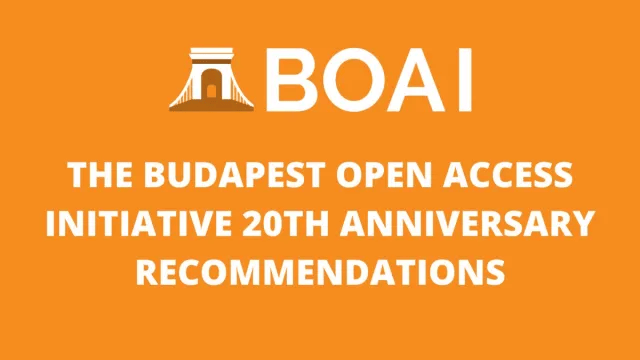La ley y la innovación en la biotecnología alimentaria: implicaciones éticas en la producción de alimentos funcionales
DOI:
https://doi.org/10.5281/zenodo.15252856Palabras clave:
alimentos funcionales, legislación alimentaria, ética en biotecnología, regulación del etiquetado, seguridad del consumidorResumen
Los alimentos funcionales han surgido como una categoría innovadora dentro de la industria alimentaria, promovidos por su capacidad para ofrecer beneficios adicionales más allá de la nutrición básica. Sin embargo, su comercialización plantea importantes desafíos legales y éticos, especialmente en lo que respecta a la regulación de sus propiedades saludables, la responsabilidad de los productores y la equidad en su acceso. Esta revisión sistemática analiza la legislación vigente en distintas jurisdicciones, incluyendo la Unión Europea, Estados Unidos y América Latina, comparando los enfoques regulatorios y su impacto en la seguridad alimentaria y la protección del consumidor. Se examinaron los principales dilemas éticos asociados a la promoción de estos productos, como la transparencia en el etiquetado, el acceso desigual a alimentos funcionales y el uso de biotecnología en su desarrollo. Los resultados muestran que, si bien existen marcos normativos que buscan regularmente estas cuestiones, persisten desafíos en su aplicación efectiva y en la armonización de estándares a nivel internacional. Se concluye que una regulación más estricta y homogénea, junto con estrategias de comunicación clara y accesible para los consumidores, es fundamental para garantizar la seguridad y equidad en el mercado de los alimentos funcionales.
Descargas
Referencias
Agurs-Collins, T., Alvidrez, J., ElShourbagy, S., Evans, M., Gibbs, K., Kowtha, B., Pratt, C., Reedy, J., Shams-White, M., & Brown, A.G. (2024). Perspective: Nutrition Health Disparities Framework: A Model to Advance Health Equity. Adv Nutr, 15(4), 100194. https://doi.org/10.1016/j.advnut.2024.100194
Baker, M.T., Lu, P., Parrella, J.A., & Leggette, H.R. (2022). Consumer Acceptance toward Functional Foods: A Scoping Review. Int J Environ Res Public Health, 19(3), 1217. http://www.doi.org/10.3390/ijerph19031217
Christoforou, A., Norsen, S., Bernstein, J., & L’Abbe, M. (2021). Examining the Prevalence, Nutritional Quality and Marketing of Foods with Voluntary Nutrient Additions in the Canadian Food Supply. Nutrients, 13(9), 3115. https://doi.org/10.3390/nu13093115
Coppens, P., da Silva, M.F., & Pettman, S. (2006). Euro-pean regulations on nutraceuticals, dietary supplements and functional foods: a framework based on safety. Toxicology, 221(1), 59-74. https://doi.org/10.1016/j. tox.2005.12.022
Damián, M.R., Cortes-Perez, N.G., Quintana, E.T., Ortiz-Moreno, A., Garfias, C., Cruceño-Casarrubias, C.E., Sánchez, M.E., & Bermúdez-Humarán, L.G. (2022). Functional Foods, Nutraceuticals and Probiotics: A Focus on Human Health. Microorganisms, 10(5), 1065. https://doi.org/10.3390/microorganisms10051065
Di Bitonto, P., Magarelli, M., Novielli, P., Romano, D., Diacono, D., de Trizio, L., Mariano, A., Zoani, C., Ferrero, R., Manzin, A., De Angelis, M., Bellotti, R., & Tangaro, S. (2024). From data to nutrition: the impact of com puting infrastructure and artificial intelligence. Explor Foods Foodomics, 2, 810-29. https://doi.org/10.37349/ eff.2024.00063
Dietary Supplement Health and Education Act (DSSHEA). (1994). Public Law 103-417. Dietary Supplement Health and Education Act. https://ods.od.nih.gov/About/ DSHEA_Wording.aspx
FAO, IFAD, UNICEF, WFP & WHO. (2023). The State of Food Security and Nutrition in the World 2023. Urbanization, agrifood systems transformation and healthy diets across the rural–urban continuum. Rome, FAO. https://doi.org/10.4060/cc3017en
Food and Drug Administration (FDA). (2024). Authorzed Health Claims That Meet the Significant Scientific Agreement (SSA) Standard. https://www.fda.gov/ food/nutrition-food-labeling-and-critical-foods/authorized-health-claims-meet-significant-scientific-agreement-ssa-standard
García-Nieto MT, Gonzálvez-Vallés JE, Viñarás-Abad M. (2021). Social Responsibility and Misleading Advertising of Health Products on the Radio. The Opinion of the Professionals. Int J Environ Res Public Health, 18(13), 6912. https://doi.org/10.3390/ijerph18136912
Ghimire, B.K., Yu, C.Y., Kim, W.-R., Moon, H.-S., Lee, J., Kim, S. H., & Chung, I. M. (2023). Assessment of Benefits and Risk of Genetically Modified Plants and Products: Current Controversies and Perspective. Sustainability, 15(2), 1722. https://doi.org/10.3390/su15021722
Gómez, C.V., Castillo, I.G., Martínez, I., & Ibañez, L. (2023). The Regulatory Status of Functional Foods in the Economic Integration Organizations of Latin America and the Caribbean. Archivos Latinoamericanos de Nutrición, 73(4), 297-312. https://doi.org/10.37527/2023.73.4.005
Gupta, A. (2023). Deceptive advertising, regulation and naive consumers. International Journal of Industrial Organization, 91, 103026. https://doi.org/10.1016/j.ijindorg.2023.103026
Hilbeck, A., Meyer, H., Wynne, B. & Millstone, E. (2020). GMO regulations and their interpretation: how EFSA’s guidance on risk assessments of GMOs is bound to fail. Environ Sci Eur, 32(54). https://doi.org/10.1186/ s12302-020-00325-6
Holm, L. (2003). Food Health Policies and Ethics: Lay Perspectives on Functional Foods. Journal of Agricultural and Environmental Ethics, 531-544. https://doi.or g/10.1023/B:JAGE.0000004966.67083.8ª
Intrasook, J., Tsusaka, T.W., & Anal, A.K. (2024). Trends and current food safety regulations and policies for functional foods and beverages containing botanicals. J Food Drug Anal, 32(2), 112-139. http://www.doi. 39 J. Law Epistemic Stud. (January - June 2025) 3(1): 31-39 org/10.38212/2224-6614.34990
Muela-Molina, C., Perelló-Oliver, S., & García-Arranz, A. (2021). False and misleading health-related claims in food supplements on Spanish radio: an analysis from a European Regulatory Framework. Public Health Nutr, 24(15), 5156-5165. doi: https://doi.org/10.1017/S1368980021002007
Ohri-Vachaspati, P., DeWeese, R.S., Acciai, F., DeLia, D., Tulloch, D., Tong, D., Lorts, C., & Yedidia, M. (2019). Healthy Food Access in Low-Income High-Minority Communities: A Longitudinal Assessment-2009-2017. Int J Environ Res Public Health, 16(13), 2354. https:// doi.org/10.3390/ijerph16132354
Pettoello-Mantovani, C., & Olivieri, B. (2022). Food safety and public health within the frame of the EU legislation. Global Pediatrics, 2, 100020. https://doi.org/10.1016/j. gpeds.2022.100020
Ponte, L.G.S., Ribeiro, S.F., Antunes, A.E.C., Bezerra, R.M.N., & da Cunha, D.T. (2024). Beyond the Myths: Brazilian Consumer Perceptions of Functional Food. Foods, 13(24), 4161. https://doi.org/10.3390/ foods13244161
Reglamento CE No 1924/2006. (2006). Reglamento del Parlamento Europeo y del Consejo relativo a las declaraciones nutricionales y de propiedades saludables en los alimentos. https://www.boe.es/doue/2006/404/L00009- 00025.pdf
Schroeder, D. (2007). Public Health, Ethics, and Functional Foods. J Agric Environ Ethics, 20, 247-259. https://doi. org/10.1007/s10806-007-9033-1
Shimizu, T. (2003). Health claims on functional foods: the Japanese regulations and an international comparison. Nutr Res Rev, 16(2), 241-52. https://doi.org/10.1079/ NRR200363
Sosa-Holwerda, A., Park, O.H., Albracht-Schulte, K., Niraula, S., Thompson, L., & Oldewage-Theron, W. (2024). The Role of Artificial Intelligence in Nutrition Research: A Scoping Review. Nutrients, 16(13), 2066. https://doi.org/10.3390/nu16132066
Spackman, C. (2019). Functional Foods. In: Kaplan, D.M. (eds) Encyclopedia of Food and Agricultural Ethics. Springer, Dordrecht. https://doi.org/10.1007/978-94- 024-1179-9_94
Varzakas, T., & Antoniadou, M. (2024). A Holistic Approach for Ethics and Sustainability in the Food Chain: The Gateway to Oral and Systemic Health. Foods, 13(8), 1224. https://doi.org/10.3390/foods13081224
Virgen, C.A., y Mojica, L. (2024). Revisión histórica y conceptual de los alimentos funcionales: antecedentes, perspectivas y desafíos. Journal of Behavior and Feeding, 4(7), 11-20. https://doi.org/10.32870/jbf.v4i7.48
Weale A. (2010). Ethical arguments relevant to the use of GM crops. N Biotechnol, 27(5), 582-7. https://doi.org/10.1016/j.nbt.2010.08.01
Publicado
Declaración de disponibilidad de datos
No aplicable.
Número
Sección
Licencia
Derechos de autor 2025 Los derechos de autor se asignarán automáticamente a Daliannis Rodríguez, Mario A. García (Autor) cuando esto se publique.

Esta obra está bajo una licencia internacional Creative Commons Atribución-NoComercial-CompartirIgual 4.0.
































